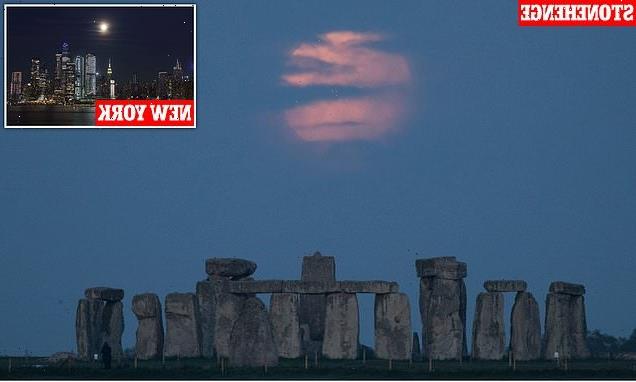Written by Georgina Lawton
Racial denial describes the act of coercing mixed-race people to identify solely as one race. Here, the author of Raceless, Georgia Lawton, speaks to three other mixed-race women about the harmful effects of being encouraged to identify as white at home, while being racialised outside of it.
Race impacts the trajectory of our lives in many meaningful ways, influencing health outcomes, political decisions and colouring many of our interpersonal relationships, whether we like to admit it or not.
Many of us know that there is no scientific basis for the concept of race while also understanding that Black and brown people experience racialisation on a daily basis. But for those discouraged from celebrating and acknowledging their ancestry, navigating the lived experiences of race can prove incredibly difficult.
My book, Raceless, examines the lesser-known phenomena of racial erasure, mapping my own journey as I disrupt secrets and silence at the heart of my family after being told by both my white parents that I was white until discovering in my early 20s that my biological father was Black.
While traveling to Black communities around the world, decolonising my psychology and drawing parallels with others, I examine the devastating effect of a colour-blind approach within interpersonal relationships.
The word ‘raceless’ alludes to the very particular feeling of dislocation which occurs when your heritage is white-washed in a homogenous setting – it can happen to any Black and brown person in a white space but seems to be more common within intimate relationships.
Over the years I’ve spoken to many people raised within white homes, trans-racial adoptees (people raised by caregivers of a different race to them) and those of multiple-heritage backgrounds about the complexities of being encouraged to identify as white when they are not, as well as the complexities of enduring racial gaslighting in intimate settings while navigating perceived privilege in other spaces.
Christina Thompson* aged 27, was raised in south London with her white mother, after her Ghanian father left the family when she was a baby. Despite growing up in a diverse pocket of the capital, Christina felt unable to claim both sides of her heritage due to her mother’s disparaging attitude towards her father.
“My mum wanted me to forget completely about being Ghanaian even though it’s visible in my appearance. She never spoke about my father in a positive light – in fact I even heard her call him the n-word on occasion.” As Christina grew more politically aware in her late teens and tracked down her dad, she appealed to her mother to apologise for the racism she had heard growing up, explaining that it impacted her too.
But Christina’s mother refused to acknowledge her behaviour. “She wasn’t up for making the connection,” Christina recalls. “I remember one time she just looked at me and said ‘Don’t forget you’re white too’ which was just so incredibly reductive, hurtful and dismissive.”
Racial denial from white parents takes place to suppress and stifle, to uphold traditional notions of kinship via cultural erasure. In cases like Christina’s, whiteness is weaponised by a white mother in an attempt to reduce the influence of the Black father after a failed relationship.
It’s something I can relate to. In my book I write about the strained conversation with my Irish mother when I called to tell her of my 43% Nigerian heritage after taking a DNA test: “Well you’re still more white than anything,” came the flat response.
Whiteness is dependent on the subjugation of a racialised “other” but it’s also an identity to which many mixed-heritage individuals and those raised in white homes are encouraged to aspire; a currency they benefit from, while simultaneously being excluded by.
I’ve also found that shame – and in particular female shame – is a common theme when it comes to the whitewashing of racial and cultural histories in the home. Toni Raye, aged 37, who was raised in Essex by her English father and Indian mother, tells me of inheriting a deep shame about her heritage from her brown-skinned mother who denied their Indian ancestry.
But growing up Toni had many questions. “I was like a dog with a bone growing up because everyone was white in our area, all the kids in my primary school were white – but at school I was called a ‘Malteser’ and the nurse said when I was born I looked like the actor Bob Hoskins with all my hair. I would go home and say: ‘Mum where are we from? What am I?’”Toni tells me over Skype.
Toni was told she was white and that she had inherited her looks via a ‘throwback’ gene – something which was used to justify my own appearance in a white British and Irish family. Even after Toni suffered a racist incident at school, aged seven, no further discussion around race occurred.
“Growing up people would ask my mum: ‘well what you got in you then?’ but she would just shrug and say ‘Don’t know, just tanned’. I remember sometimes she’d have the whitest make-up on, bright blue eyeshadow, red lipstick but you could still see the brown.”
Toni’s mother has Asian and Jewish ancestry but was raised in a white family where her own heritage was not celebrated. Toni believes that her mother learned to be deeply ashamed of who she was due to her complex upbringing. “You could never ask my grandparents any questions about our looks and that made me really sad. My mum was very cagey and closed-off about who she was.”
As she grew older, Toni gravitated towards brown and Black friends at school. Age 16, she finally received an answer from her mum about their heritage. “I remember she was in the bath when she told me we were Indian. I couldn’t believe it, but in a way, it was like I knew.”
The reveal sparked a decades-long obsession to catch-up with her cultural heritage. She asked her mum for a sari, told the truth to everyone she knew, and traced Indian relatives on Facebook as an adult. Toni has since repaired the relationship with her mother after having a son of her own.
It’s a huge psychological journey to which I can relate. I know that being told “we don’t see your colour” in private, while being racialised in public is a psychological trauma deep enough to impact the body – and research proves it too. One study from the University of British Columbia found that mistaking an individual’s racial identity can leave people at greater risk of high blood pressure, poorer self-rated mental health and poorer self-rated overall health.
People with mixed ethnicity now make up the fastest growing ethnic population in the UK. And for mixed people with families of many different racial backgrounds, the dialogue around privilege and discrimination requires more sensitivity and nuance.
Alicia Young-Collins, aged 33, grew up in south London but now lives in New York City. Her white British mother and Caribbean father had a happy marriage and she felt confident in her mixed-heritage background, but sometimes her extended family would pass remarks that unsettled her.
“When I was a kid I remember my aunty would look at pictures I was drawing of family in Antigua and say things like ‘Oh look at the lovely Pickaninnies’. My grandma would also call me half-caste. It wasn’t until I got to secondary school and learned more racial vocabulary from teachers and a lot of my Black friends that I realised that those words weren’t good words.”
Alicia also recalls learning about tension from her white family when her mother married her father. “I heard that my grandmother didn’t come to see me and my sister when we were born. I think it had something to do with my mum being married to a Black man, who was abusive, before she met my dad. They worried it was going to be the same.”
Although Alicia describes both sides of her family as being close and supportive of one another, she also describes reconciling racist remarks with love and affection within some of her relationships. “As a child it was strange to connect that weird ignorance with people who showed us such love. It was confusing. Everyone loved each other but sometimes you’d hear these comments. And because I was young, I’d let these comments slide because I just couldn’t compute, I didn’t have the language.”
Navigating race within interpersonal relationships can be a contradiction in terms. The idea that white family members can hold racist views while raising Black children isn’t new to many of us who have lived it. But while it is now common for Black people to refuse to explain the reality of race and discrimination to white people, preferring to hit them with the “google is free” refrain, for those within mixed families, this approach is not conducive to repairing relationships, feeling fully seen or heard, or dismantling white supremacist ideals in the home.
As Christina says. “If you are a Black child living in a home where a parent uses the n-word, then that home is no longer a safe space. It might take you years to realise it, but challenging family members is the only way to get them to change.” As Alicia notes, correcting her family’s use of offensive language took years. “It’s something that’s come with age,” she admits.
Whiteness is not just a racial category we perceive to be real, but a currency which can aid anyone in its proximity. When encouraged to aspire solely to whiteness at the expense of their other ancestry, for mixed individuals and Black and brown children within white homes there is a loss, pain, irreparable damage done. The answer is not simply for white parents to “celebrate” all parts of our heritage, but instead learn how to exist without being welded to their whiteness, to separate themselves from a system based on incorrect notions of purity and superiority. Only then will it cease to be the default and normative identity to which each of us should aspire.
Raceless: In Search of Family, Identity, and the Truth About Where I Belong by Georgina Lawton is published by Sphere, is out now, £18.99.
Main image: Getty/photo courtesy of Georgina Lawton
Source: Read Full Article




